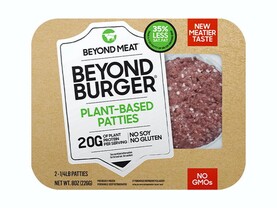In this year’s Agribusiness report, produced by the Irish Farmers Journal in conjunction with KPMG, we examine the competitiveness of Ireland’s agribusiness sector in comparison to some of our biggest rivals in world markets.
Although Ireland is a high-cost economy, Irish businesses continue to find new ways of innovating and adding value that allow them to compete successfully in international markets. Wages and other operational costs for Irish businesses are comparatively higher than for most of our international competitors.
Yet efficient tax policies, an extremely productive workforce and a focus on adding value allows Irish agribusinesses to compete with lower-cost rivals in global exports markets.
In this year’s Agribusiness report, we also take an in-depth look at the logistics and transport sector and how it plays a key role in maintaining Ireland’s competitiveness. Since the Brexit vote in 2016, Ireland’s agri-food sector has been encouraged to diversify its reliance away from the UK market and to open new sales markets on continental Europe and further afield.
For this diversification strategy to succeed, a strong logistics network of road, rail and sea transport is essential.
As an island nation, it’s no surprise that over 90% of Ireland’s international trade is done via its sea ports. We profile the two largest ports in the country, Dublin Port and Foynes Port, and learn what development plans they have in the pipeline over the coming decade.
This year’s report also includes a number of company case studies where new entrants to a market successfully disrupted established competitors. Irish agribusinesses looking to open new markets in Europe and Asia may be daunted by the scale of established rivals. Yet, history has shown that global giants can be toppled with the right strategy.
A case study of Aldi, the German discounter, shows how a clever strategy to expose the weaknesses in the business model of an established competitor can pay huge dividends. We also examine how companies such as Coca-Cola and the A2 Milk Company are competing successfully in global dairy markets by marketing new innovations to disrupt establish rivals.
Meat sector
In the meat sector, we look at how Kepak has rapidly adapted to new consumer trends in food and is winning more business than ever in export markets.
We also look at how a startup business in Kilkenny is primed to take advantage of the exploding trend for plant-based foods.
And, finally, we profile Irish agribusinesses that are adapting their product range to win new sales in export markets in continental Europe.
Aiming to diversify from the UK is one thing, but having the right product that allows your business to compete successfully is crucial.
Given the reliance of export markets for Ireland’s agri-food sector, Irish agribusinesses must always strive to be ultra-efficient and focused on added value. Ireland will never be a country for low-cost manufacturing, meaning Irish agribusinesses must seek to add value in order to protect margins and compete successfully in global markets against lower-cost rivals.
On top of this, a continued focus on R&D and new product development is essential if Ireland’s agribusiness sector is to deliver sustainable returns to Irish farmers for their raw materials, be it meat, milk or grain.






 This is a subscriber-only article
This is a subscriber-only article









SHARING OPTIONS: